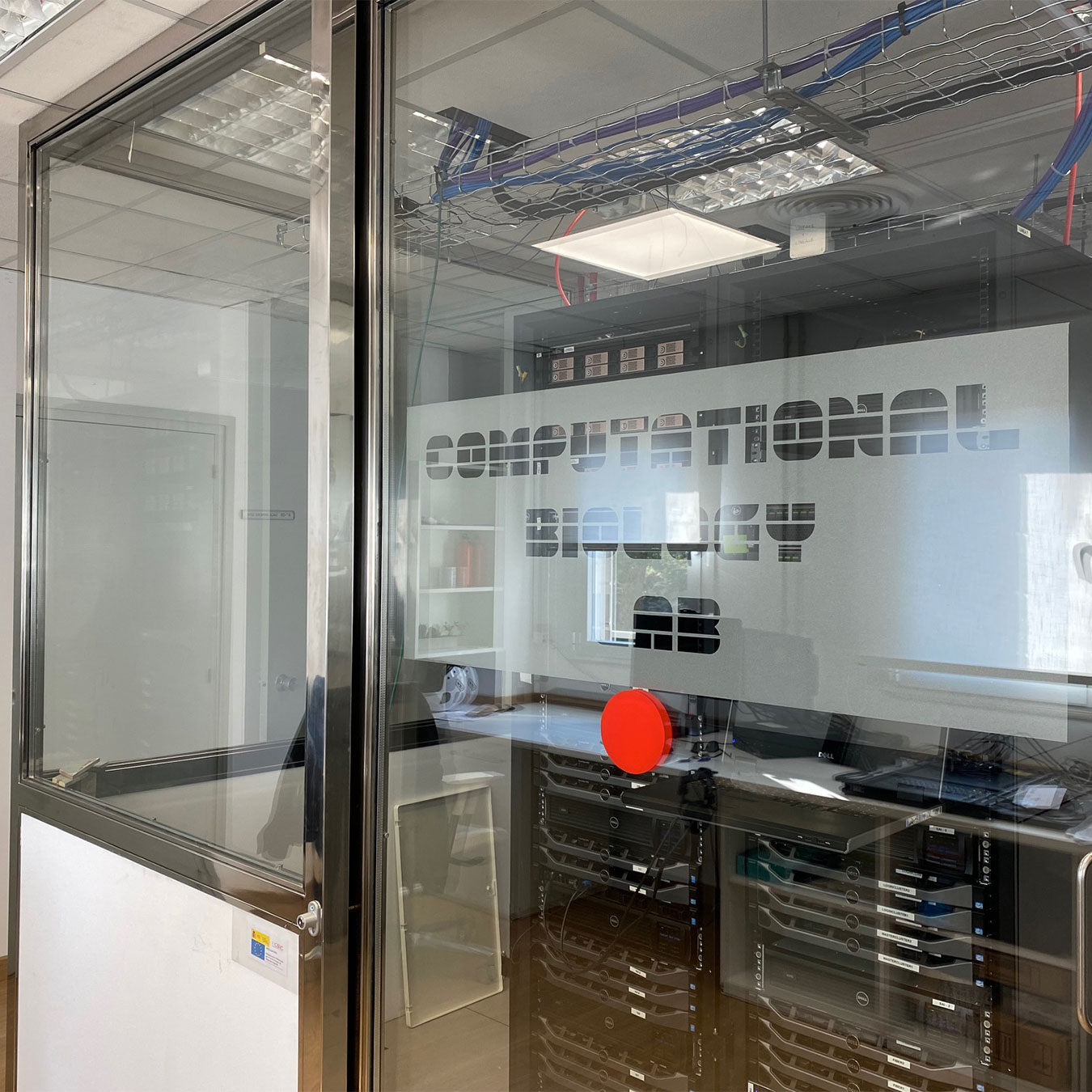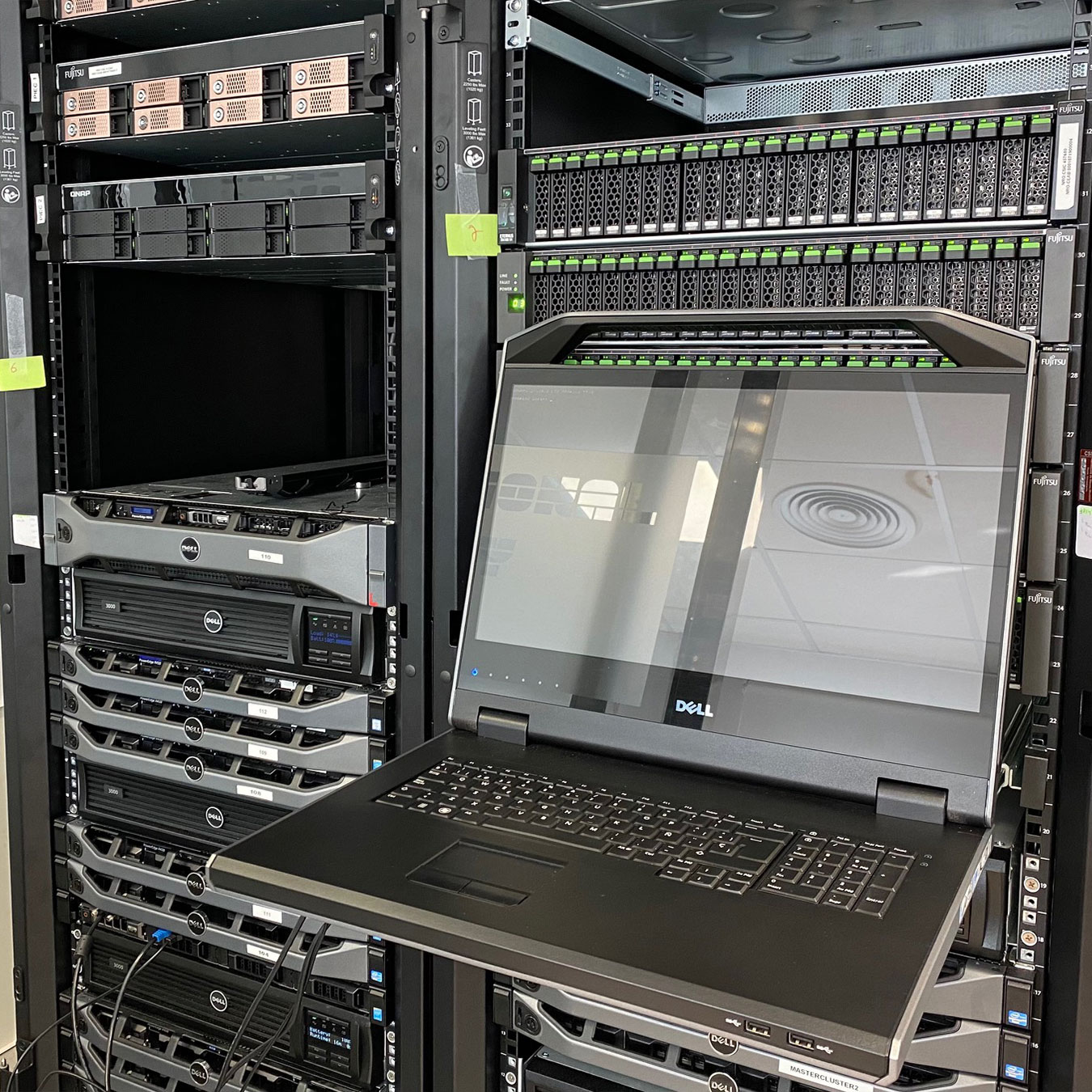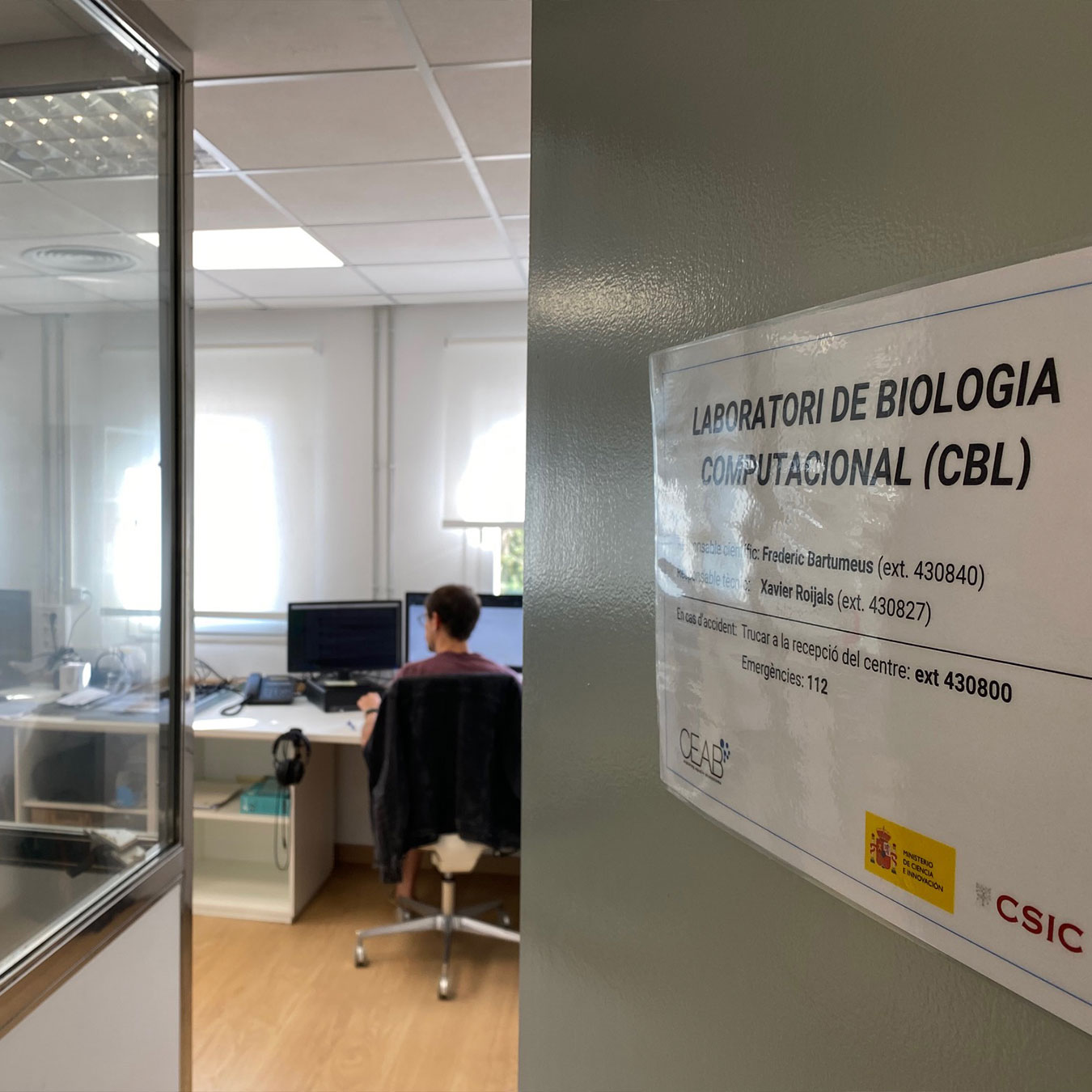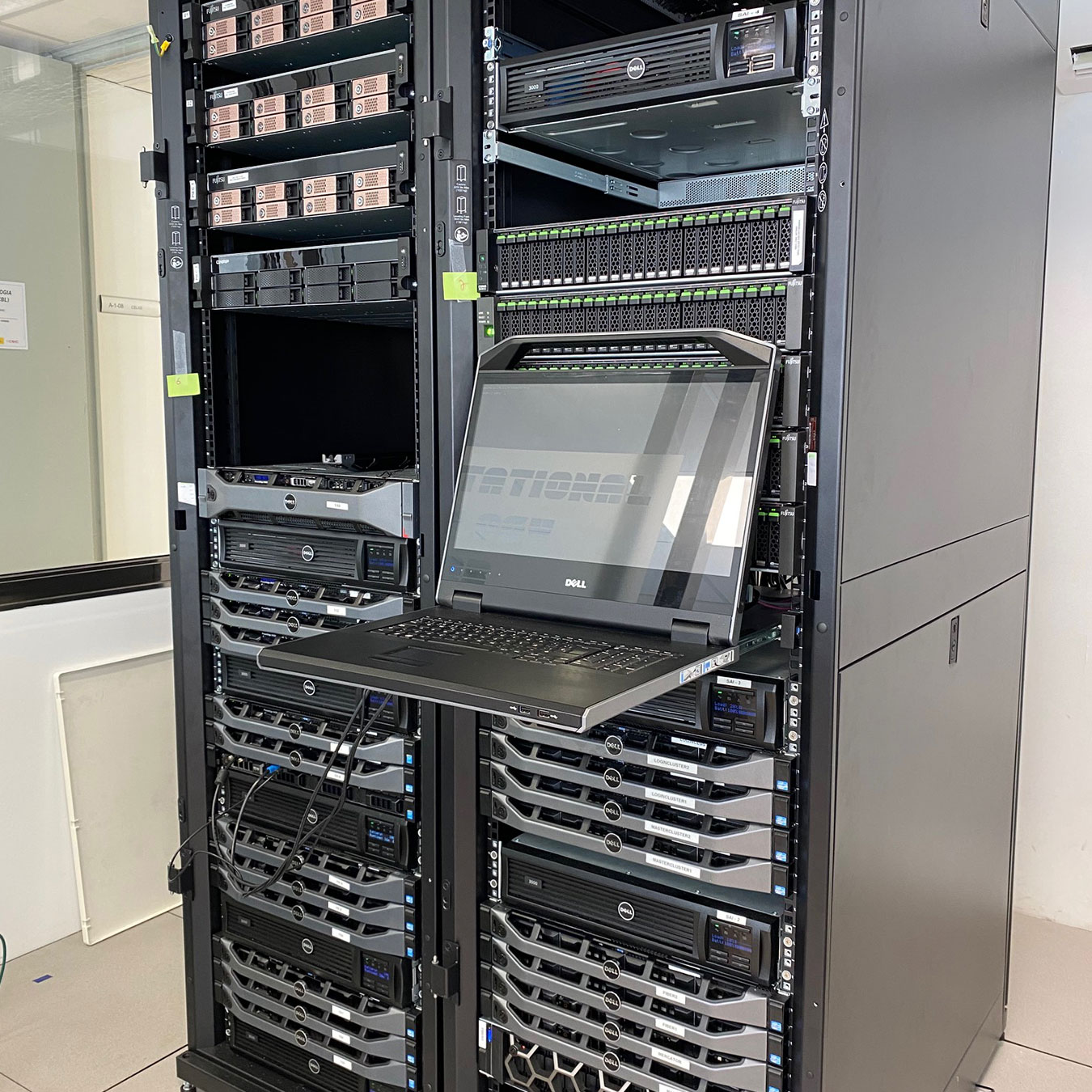Unique facilities
Computational Biology Laboratory (CBLab)
The laboratory was created in response to the growing demand for computing capacity linked to the frontier R&D carried out at the CEAB and linked to various aspects of ecology.
It boasts a High-Performance Computing Cluster (CAR Cluster) for shared use, funded by the centre’s infrastructure resources and the Spanish Ministry of Economy and Competitiveness.
Equipment and features:
The total capacity of the CAR Cluster comprises 13 computing nodes, totalling 284 processors, 2671 GB of RAM and 65 TB of high-performance disk space, in addition to 4 NAS storage units for various research projects linked to the cluster, each with a capacity of about 43 TB. It also has four servers totalling 72 cores and 312G of RAM for uses beyond computing (such as virtual machines and servers related to training and citizen science transmission).
Scientific goals:
1. To boost bioinformatics and molecular ecology at the CEAB by organising, centralising and periodically updating all the bioinformatics software used by the centre, and increasing computing capabilities.
2. To boost theoretical and computational ecology by developing and implementing statistical, mathematical and simulation techniques applied to ecological systems. To increase computing capacity, centralise and update software in R, Matlab or Python in order to perform theoretical studies and statistical analyses with high demand for computational resources (e.g. Bootstrapping).
3. To facilitate and promote the use of all kinds of techniques typical of machine learning and artificial intelligence, such as Knowledge Discovery in Databases (KDD), data mining and expert systems, organising and centralising software for this purpose and training researchers in these disciplines, which are already essential in advanced ecology studies
4. To boost training. In order to lay the foundations for a more quantitative and conceptually sound ecology, it is necessary for new generations of ecologists to learn programming languages and understand the operation and usefulness of a CAR Cluster. However, training in disciplines such as algorithms and data mining, database management, GIS applications, etc., is necessary. This learning enables more powerful scientific tools to solve complex problems. In this sense, the CBLab not only focuses on the CAR cluster but also aims to be a “living” laboratory with the involvement of support technicians and researchers from the centre, consultants (individuals or groups), interdisciplinary workshops and others. The aim is to establish operational bridges between theory and empiricism, producing a more quantitative and interdisciplinary ecology.
Information for users
Contact






